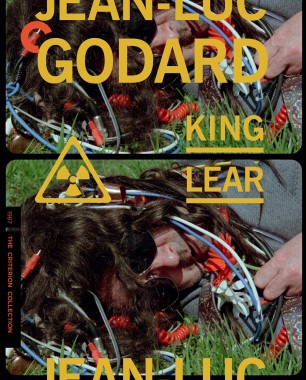Le petit soldat

Before his convention-shattering debut, Breathless, had even premiered, Jean-Luc Godard leapt into the making of his second feature, a thriller that would tackle the most controversial subject in France: the use of torture in the Algerian War. Despite his lack of political convictions, photojournalist Bruno Forestier (Michel Subor) is roped into a paramilitary group waging a shadow war in Geneva against the Algerian independence movement. Anna Karina (in her first collaboration with Godard, whose camera is visibly besotted with her) is beguiling as the mysterious woman with whom Forestier becomes infatuated. Banned for two and a half years by French censors for its depiction of brutal tactics on the part of the French government and the Algerian fighters alike, Le petit soldat finds the young Godard already retooling cinema as a vehicle for existential inquiry, political argument, and ephemeral portraiture—in other words, as a medium for delivering “truth twenty-four times per second.”
BLU-RAY SPECIAL EDITION FEATURES
- High-definition digital restoration, approved by cinematographer Raoul Coutard, with uncompressed monaural soundtrack
- Interview with director Jean-Luc Godard from 1965
- Interview with actor Michel Subor from 1963
- Audio interview with Godard from 1961
- New English subtitle translation
- PLUS: An essay by critic Nicholas Elliott
New cover by F. Ron Miller
BLU-RAY SPECIAL EDITION FEATURES
- High-definition digital restoration, approved by cinematographer Raoul Coutard, with uncompressed monaural soundtrack
- Interview with director Jean-Luc Godard from 1965
- Interview with actor Michel Subor from 1963
- Audio interview with Godard from 1961
- New English subtitle translation
- PLUS: An essay by critic Nicholas Elliott
New cover by F. Ron Miller

Cast
- Michel Subor
- Bruno Forestier
- Anna Karina
- Veronica Dreyer
- Henri-Jacques Huet
- Jacques
- Paul Beauvais
- Paul
- Georges de Beauregard
- Activist leader
- László Szabó
- Laszlo
- Jean-Luc Godard
- Man at the railway station
Credits
- Director
- Jean-Luc Godard
- Producer
- Georges de Beauregard
- Screenplay
- Jean-Luc Godard
- Director of photography
- Raoul Coutard
- Editor
- Agnès Guillemot
- Editor
- Lila Herman
- Editor
- Nadine Marquand
- Editor
- Nadine Trintignant
- Music
- Maurice Leroux
A scene from Le petit soldat

















